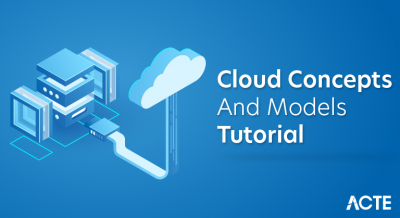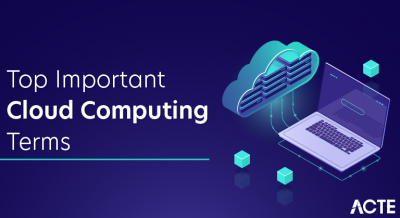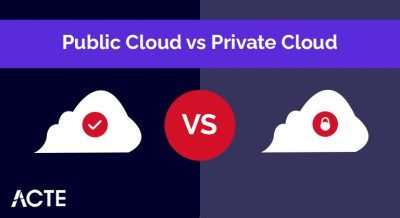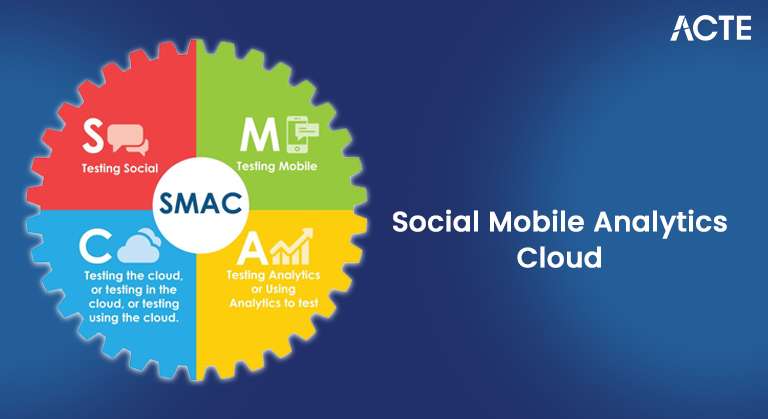
- Introduction to SMAC (Social Mobile Analytics Cloud)
- Why SMAC is Revolutionizing IT Industry
- The Role of Social Media in IT and Business
- Mobile Technology Trends and Career Growth
- Analytics and Big Data: Key Skills for IT Professionals
- Cloud Computing’s Impact on IT Industry
- SMAC Technologies and Digital Transformation
- Top Certifications for SMAC Professionals
- How to Develop SMAC Expertise
- Career Opportunities in SMAC Fields
- Challenges in Adopting SMAC Technologies
- Future of SMAC in IT and Business
Introduction to SMAC (Social, Mobile, Analytics, Cloud)
SMAC is an acronym that stands for Social, Mobile, Analytics, and Cloud. These four technological components are driving the digital transformation of businesses across the globe. SMAC has become a critical framework for organizations looking to modernize their Cloud Computing Course infrastructure, improve operations, and deliver better customer experiences. Each of these technologies plays a distinct role. Still, when integrated, they have the power to create innovative solutions that help businesses stay competitive and agile in an increasingly digital world. In this article, we will explore how SMAC is revolutionizing the IT industry, how businesses are leveraging these technologies, the career opportunities in this space, and the challenges of implementing SMAC technologies.
Why SMAC is Revolutionizing the IT Industry
SMAC is revolutionizing the IT industry by providing businesses with the tools and capabilities to operate more efficiently, engage with customers in meaningful ways, and harness the power of data to make informed decisions. The combination of social media, mobile technology, analytics, and cloud computing is changing the way businesses deliver products and services, collaborate internally, and manage their IT infrastructures.
- Agility and Flexibility: SMAC technologies allow businesses to scale resources up or down according to demand. Cloud computing allows businesses to access computing resources without managing physical servers, while mobile technology enables employees to work remotely and access information from anywhere.
- Improved Decision-Making: Analytics and big data give organizations insights into customer behavior, market trends, and operational performance, helping them make more data-driven decisions. This enhances both strategic and tactical planning.
- Increased Connectivity: Social media connects businesses with their customers and enables real-time communication, enhancing customer engagement and improving marketing efforts. Mobile technology allows customers to interact with companies via mobile apps, creating new business opportunities to serve Essential Cloud Computing Tools and Beyond customers.
- Cost Efficiency: SMAC technologies can help reduce infrastructure costs and improve resource utilization. Cloud services allow businesses to eliminate the need to maintain costly on-premises infrastructure, while mobile apps can provide cost-effective customer service solutions.
Advance your Cloud Computing career by joining this Cloud Computing Online Course now.
The Role of Social Media in IT and Business
Social media is essential in both the IT industry and business operations. It allows companies to engage with customers directly, receive real-time feedback, and promote products or services through various social platforms such as Facebook, Twitter, LinkedIn, Instagram, and more. The role of social media in IT and business can be summarized as follows:
- Customer Engagement: Social media provides a direct channel for businesses to interact with customers, address queries, respond to concerns, and foster loyalty.
- Brand Awareness: Social media helps businesses reach a large and diverse audience, which increases their visibility and helps build brand awareness.
- Marketing and Advertising: Social media platforms allow businesses to market their products or services to specific demographics through targeted advertising, increasing the likelihood of Ansible Playbooks Explained Guide leads and sales.
- Data Collection and Analysis: Social media is a goldmine for data. Businesses can monitor and analyze customer conversations, behaviors, and trends to tailor their products or services to meet customer needs.
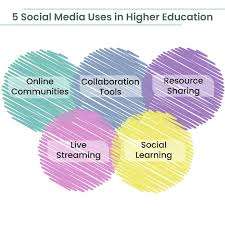
Mobile Technology Trends and Career Growth
Mobile technology has become an integral part of both personal and professional lives. The rapid adoption of smartphones and mobile apps has made it essential for businesses to develop mobile solutions for customers and employees. Some key trends in mobile technology include:
- Mobile App Development: As businesses prioritize mobile-first strategies, demand for mobile app developers is skyrocketing. Professionals with expertise in iOS, Android, or cross-platform app development are in high demand.
- 5G Technology: With the rollout of 5G networks, mobile technologies will experience a significant boost in speed and connectivity. This will open up new opportunities for IoT (Internet of Things) applications, augmented reality (AR), and virtual reality (VR).
- Mobile Security: As more sensitive data is accessed on mobile devices, cybersecurity in mobile technology becomes even more critical. Mobile security professionals are needed to ensure that apps, networks, and data remain safe from threats.
- Wearables and IoT: The rise of wearable devices like AWS S3 CLI Efficient Cloud Storage , fitness trackers, and IoT-enabled mobile devices is creating new possibilities for mobile technology. Developers and IT professionals are needed to build and manage the infrastructure that supports these devices.
- Data Analysis: The ability to analyze large datasets and extract meaningful insights is critical. Professionals should be comfortable working with statistical models, data visualization, and business intelligence tools.
- Big Data Technologies: Familiarity with big data platforms like Hadoop, Spark, and NoSQL databases is essential for processing vast amounts of unstructured data.
- Machine Learning and AI: As organizations use more sophisticated methods to analyze data, knowledge of machine learning algorithms, AI frameworks, and predictive modeling will be crucial.
- Data Warehousing and ETL: Understanding data warehousing concepts and having experience in ETL (Extract, Transform, Load) processes is important for Cloud Computing Course pipelines and preparing data for analysis.
- Cloud-Based Analytics Tools: Familiarity with cloud-based analytics platforms like Google BigQuery, AWS Redshift, and Azure Data Lake is important for working with scalable, flexible analytics solutions.
- Cloud Certifications: AWS Certified Solutions Architect, Microsoft Certified: Azure Solutions Architect Expert, Google Professional Cloud Architect
- Data Analytics Certifications: Google Data Analytics Professional Certificate, SAS Certified Big Data Amazon Aurora , Microsoft Certified: Data Analyst Associate
- Mobile Development Certifications: Apple Certified iOS Developer, Google Certified Android Developer
- Social Media Marketing Certifications: Facebook Blueprint, Hootsuite Social Media Certification, LinkedIn Marketing Solutions Certification
- Pursue Relevant Certifications: Obtain certifications in cloud computing, analytics, mobile technologies, and social media marketing.
- Gain Hands-On Experience: Work on real-world projects that allow you to apply SMAC technologies in a practical setting.
- Stay Updated: The SMAC space is constantly evolving. Stay updated with the latest trends and tools by following industry blogs, attending webinars, and participating in online forums.
- Build a Portfolio: Showcase your expertise through a portfolio of completed projects, case studies, and technical solutions highlighting your SMAC skills.
- Integration Complexity: Integrating SMAC technologies into existing IT systems can be complex and time-consuming.
- Data Security: Managing the security and privacy of data in the cloud or across mobile and social platforms is a major concern.
- Skill Shortage: Finding qualified professionals with expertise in cloud computing, analytics, mobile development, and social media marketing can be difficult.
- Cost of Implementation: The initial cost of adopting SMAC technologies may be high, especially for small and medium-sized businesses.
These mobile trends create many career opportunities for developers, cybersecurity professionals, IT administrators, and digital marketers. Professionals with mobile development skills, expertise in mobile security, and experience with emerging mobile technologies are well-positioned for growth in the job market.
Start your journey in Cloud Computing by enrolling in this Cloud Computing Online Course .
Analytics and Big Data: Key Skills for IT Professionals
Analytics and big data have become essential to modern businesses, enabling organizations to make data-driven decisions and optimize operations. The growth of data and the increasing availability of tools to process and analyze it have created significant demand for professionals skilled in data analysis and big data technologies.
Key skills for IT professionals in this area include:With the growth of big data, the demand for professionals skilled in analytics, data science, and machine learning will continue to rise. These professionals can work in a wide range of industries, from finance to healthcare, marketing, and beyond.
Cloud Computing’s Impact on the IT Industry
Cloud computing has fundamentally transformed the IT industry by providing businesses with access to scalable, cost-effective computing resources. Cloud technology enables businesses to run applications, store data, and manage infrastructure without the need for expensive on-premises hardware. The impact of cloud computing on the IT industry includes, Cost Reduction By shifting to the cloud, businesses can reduce the need for physical infrastructure, lowering hardware and maintenance costs. Scalability Cloud platforms provide on-demand resources, allowing businesses to easily scale their infrastructure as needed. Cloud-based collaboration tools allow employees to work remotely, increasing productivity and providing greater flexibility in the workplace.Cloud computing offers more reliable and cost-effective disaster recovery options, as data can be backed up and stored securely in the a Seamless Cloud Migration Guide . Cloud services provide businesses with access to cutting-edge technologies, such as machine learning, artificial intelligence, and data analytics, enabling them to innovate faster and stay ahead of the competition.
SMAC Technologies and Digital Transformation
SMAC technologies play a pivotal role in digital transformation. Digital transformation is the integration of digital technologies into all areas of business, resulting in fundamental changes to how businesses operate and deliver value to customers. By leveraging SMAC, businesses can, Improve Customer Experience SMAC enables businesses to engage with customers on multiple channels (social media, mobile apps, websites) and offer personalized services that meet their needs. By adopting cloud computing and analytics, businesses can automate processes, reduce costs, and make more informed decisions. Social media and mobile technologies open up new opportunities for business model innovation, while cloud and analytics enable businesses to experiment and scale quickly. Analytics provide businesses with valuable insights that can inform everything from marketing strategies to product Mobile development and Unlocking Scalability with Cloud Native Tech improvements.SMAC technologies are integral to any digital transformation strategy, helping organizations improve their agility, customer satisfaction, and profitability.
Aspiring to lead in Cloud Computing? Enroll in ACTE’s Cloud Computing Master Program Training Course and start your path to success!
Top Certifications for SMAC Professionals
For professionals pursuing a career in the SMAC space, obtaining relevant certifications is a great way to demonstrate expertise and stand out in a competitive job market. Some of the top certifications include:
How to Develop SMAC Expertise
Developing expertise in SMAC requires a blend of technical skills, practical experience, and continuous learning. Here’s how to build SMAC expertise:
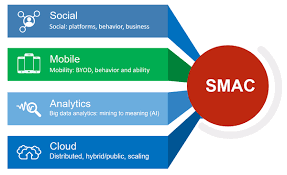
Career Opportunities in SMAC Fields
SMAC technologies have opened up a wide array of career opportunities. Some of the career paths in SMAC fields include Cloud Architect: Designing and implementing cloud infrastructures for businesses. Data Scientist Analyze complex datasets and derive actionable insights for decision-making. Introduction To Cloud Computing Developer Building mobile applications for iOS, Android, or other platforms. Digital Marketing Specialist Leveraging social media platforms for brand promotion, engagement, and customer service. Business Intelligence Analyst Utilizing analytics to optimize business strategies and improve performance.
Challenges in Adopting SMAC Technologies
While SMAC offers significant benefits, businesses may face several challenges when adopting these technologies, including:
Preparing for a job interview? Explore our blog on Cloud Computing Interview Questions and Answers!
Future of SMAC in IT and Business
The future of SMAC technologies is bright as businesses continue to embrace digital transformation. As mobile, social, analytics and cloud technologies evolve, they will become even more integral to how businesses operate and engage with their customers. Emerging technologies such as AI, machine learning, and Cloud Computing Course will further enhance the power of SMAC, creating new opportunities and challenges for IT professionals. As businesses look to stay competitive, there will be an increasing demand for professionals skilled in SMAC technologies, making it an exciting and rewarding field for career growth and innovation.


